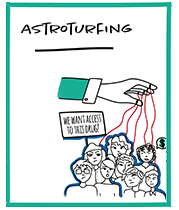Anti-corruption and integrity in the public sector

Preventing Policy Capture
Integrity in Public Decision Making
This report exposes how “policy capture”, where public decisions over policies are
consistently or repeatedly directed away from the public interest towards a specific
interest, can exacerbate inequalities and undermine democratic values, economic growth
and trust in government. It maps out the different mechanisms and risks of policy
capture, and provides guidance for policy makers on how to mitigate these risks through
four complementary strategies: engaging stakeholders with diverging interests; ensuring
transparency and access to information; promoting accountability; and identifying
and mitigating the risk of capture through organisational integrity policies.
Published on March 30, 2017Also available in: Spanish
In series:OECD Public Governance Reviewsview more titles
Key recommendations
Level the playing field: engage stakeholders with diverging interests to ensure an
inclusive decision-making process that is more resilient to capture by narrow interests.
Promote integrity and transparency in lobbying activities and political financing.
Transparency and accountability: external actors and stakeholders need access to reliable,
timely and relevant information in the decision-making process. External control,
effective competition and regulatory policies enable accountability in both the public
and private sectors.
Identify capture risks: mitigate risks through appropriate organisational integrity
policies. Define clear standards of conduct, promote a culture of integrity in public
organisations, and ensure a sound control and risk-management framework can help embed
organisational resilience to capture.

